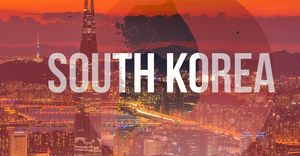French Minister of the Interior Bruno Retailleau announced on January 24, 2023, the immediate applicability of new immigration policies aimed at tightening the existing regulations on undocumented migrants. Retailleau's declaration, made during his visit to Yvelines, significantly modifies the previous Valls circular, which has allowed over 30,000 undocumented individuals to gain residency each year through various means.
During his announcement, Retailleau stated, 'The new circular is applicable from today' (reported by CNEWS), signaling a shift toward stricter immigration control mechanisms. This new directive requires applicants for 'exceptional admission' to stay in France for at least seven years, up from the previous five, and it emphasizes the need for migrants to prove their alignment with 'Republican principles.' These principles include demonstrating commitment to secularism, proficiency in the French language, and obtaining educational qualifications.
'This exceptional admission path must remain exceptional,' Retailleau stressed, indicating the intended limitation of residency permits to specific cases (reported by Figaro). This marks a departure from the more lenient approach taken under the Valls framework, which initially aimed to strike a balance between immigration control and humanitarian needs.
The revised circular highlights several key priorities: tightening the immigration system to combat irregular immigration and reinforcing the integration of foreigners already residing in France. The internal directives sent to prefects clearly call for increased scrutiny of applications from undocumented migrants, requesting them to exercise greater discretion and impose tighter restrictions.
Retailleau has previously articulated his perspective, insisting on the need for firmness, stating, 'We must be firm on illegal immigration' (reported by TF1). This approach has attracted criticism from various members of the government and the public, including concerns about fairness and humanity. Roland Lescure, Vice-President of the National Assembly, expressed his reservations about the policy, commenting, 'It goes too far, it seems excessive' (reported by TF1). He emphasized the necessity of considering those who are already integrated and working within the society.
The change from five years to seven years reflects Retailleau's commitment to reinforcing criteria around regularization. Last year, the previous circular facilitated the legal stay of 34,724 individuals, with applications granted for work, family, and educational ties. This number reflects only marginal growth — 0.3% — since 2022, underscoring the pressures faced by the immigration system.
Retailleau's hardline stance is part of a broader strategy to manage immigration flows—an endeavor backed by select factions within the Macron government. Critics assert this paradigm favors xenophobic agendas, often echoed by far-right parties advocating for tighter immigration controls.
Specifically, the new criteria under Retailleau's circular potentially exclude individuals deemed threats to public order, aligning with the push for more stringent immigration policies. The Minister's views resonate with ideologies espoused by groups affiliated with the far-right, which complicates the public discourse around immigration and integration.
Many see this as reflecting the government’s intention to reconcile the need for laborers—especially amid staffing shortages—with stringent immigration control. The circular offers no guarantees for undocumented workers or families facing potential deportation, increasing uncertainty for many within these communities.
The upcoming publication, as indicated by the Minister of Labor, will include updates to the list of professions experiencing labor shortages—expected by late February. This will directly relate to the fate of undocumented immigrants who may contribute to sectors lacking sufficient workforce. 'The reality is we cannot ignore the practical needs our economy faces,' Lescure argued, indicating the challenge of maintaining strict immigration policies amid economic demands.
Bruno Retailleau’s new circular embodies the complicated interplay between social justice, economic practicality, and national security. It will undoubtedly spark continued debate on how best to approach immigration policy, as the effects on countless lives become increasingly evident.
With the adjustments proposed by Retailleau, there remains significant concern about the approach to regularization, especially for individuals integrated within French society but lacking formal documentation. The complexity of human stories intertwines with the political narrative, shaping not only immediate outcomes but also long-term societal impacts.
Gearing up for public perceptions, the government must navigate this sensitive terrain without alienation but rather create pathways for individuals striving for acceptance and belonging. The evolution of this policy reflects broader themes of integration and acceptance—critical elements as France confronts its demographic future.



